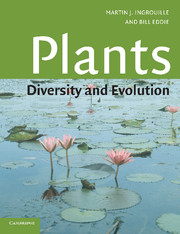Book contents
Chapter 3 - Endless forms?
Published online by Cambridge University Press: 05 June 2012
Summary
… there is a grandeur in this view of life with its several powers, having been originally breathed into a few forms or into one; and that, whilst this planet has gone cycling on according to the fixed law of gravity, from so simple a beginning endless forms most beautiful and most wonderful have been and are being evolved.
Charles Darwin, The Origin of Species, 1859The living response
The plant in its world: macrocosm and microcosm
The environment of plants exists on vastly different scales. Plants are the primary producers and are basal to almost all food chains except marine ones where they are replaced by the algae, and a few others such as some deep-sea hydrothermal vents where chemoautotrophic organisms live. They play a vital role in the flow of energy through all ecological cycles. The whole system of life rests solidly on their industry without which the evolution of many other organisms could not have occurred. Vegetation forms the macrocosm of life on Earth, yet the relationships of individual plants to their environment operate on a microcosmic scale. Many of the adaptations of plants to life on land have involved internalising the external, creating their own atmosphere in the spaces between their cells in their leaves and stems or garnering moisture and nutrients by colonising the soil in the finest possible way.
- Type
- Chapter
- Information
- PlantsDiversity and Evolution, pp. 97 - 134Publisher: Cambridge University PressPrint publication year: 2006



